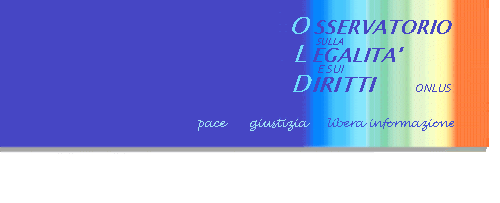

Quanti
pianti sul latte versato!
Dall'Economist del 7 gennaio 2003, traduzione di brani scelti a cura di
Giulia Alliani per Bollettino Osservatorio
"Scoppiato all'improvviso, attuato grazie a poco trasparenti canali offshore, il caso Parmalat che era stato definito "Enron d'Europa", man mano che gli investigatori scavano sempre piu' a fondo, non sembra mostrare poi troppe somiglianze con l'implosione del colosso texano.
Le acrobazie finanziarie della Enron erano davvero sofisticate, concepite da un esercito di consulenti impegnati ad architettare operazioni tanto ben congegnate quanto ingannevoli, che riuscivano a mantenere la societa' appena entro i limiti della legge.
Dalle indagini sul caso Parmalat emerge invece una truffa molto rozza, che si e' protratta molto a lungo, e che solleva una serie di spiacevoli interrogativi a proposito dei contabili dell'azienda, delle banche e dei sistemi di controllo, per non parlare degli amministratori."
L'Economist sembra quasi deluso questa settimana, nell'ennesimo articolo dedicato al caso Parmalat: la patria di Machiavelli non fa onore a se stessa, pare voler dire, come se non fossimo piu' all'altezza di certe fantasiose patacche ben note ai turisti inglesi di passaggio a Napoli.
L'articolo prosegue con la descrizione un po' stanca dello scaricabarile tra amministratori e proprietario, tra banche e azienda, tra azienda e revisori, tra revisori della sede centrale e associati della filiale italiana.
"L'Italia non manca di sistemi di controllo" continua l'Economist "L'Italia ha bisogno che i controlli vengano attuati meglio, ma - conclude l'articolo - Silvio Berlusconi, il Primo Ministro, sta dando un cattivo esempio: il suo Governo ha ridotto le pene per il falso in bilancio e la sua riluttanza a sbarazzarsi del suo impero mediatico ha creato un conflitto di interessi.
La saga della Parmalat e' destinata ad andare avanti ancora per molto. Continuera' a procurare un avvincente spettacolo per gli appassionati di scandali, e potrebbe anche dare lo spunto per imporre alla comoda scena finanziaria italiana una riforma che sta aspettando da troppo tempo." .
originale
completo:
Plenty of crying over spilt milk Jan 7th 2004, From The Economist print edition
Almost a month after the Parmalat scandal first broke into the open, the vast scale of the fraud at the insolvent food and dairy group is becoming clear. The company has been compared to Enron, but there are crucial differences IT HAS been dubbed ?Europe?s Enron? thanks to the swiftness of its fall from grace and its use of dubious offshore vehicles, but as investigators delve deeper into Parmalat, it appears that the similarities between the mess at the bankrupt Italian dairy group and the implosion of the Texas energy trader may be fewer than first thought. The financial gymnastics at Enron were truly sophisticated, with an army of legal and financial advisers employed to build clever but devious structures that kept the company just inside the law.
In Parmalat's case, prosecutors appear to have found that the longstanding fraud was breathtakingly crude, which raises a whole new set of unpleasant questions about the firm?s accountants, bankers and regulators, not to mention the people running it. Perhaps the most extreme example of the scam?s crudity is the now-infamous letter, purportedly from Bank of America, confirming that Parmalat had close to ?4 billion ($5 billion) parked in the Cayman Islands. This turns out to have been faked, apparently with the aid of nothing more sophisticated than a photocopier and fax machine (for that authentic grainy look).
This revelation has already embarrassed Grant Thornton, Parmalat's group auditors until 1999, after which they remained auditors of Bonlat, the Cayman Islands subsidiary that held this mythical cash balance. With a pile of dodgy documents to go on already, and encouraged by a post-Enron climate of vengeance against corporate criminals, prosecutors have lost no time in filing lawsuits and rounding up their suspects?eight have been arrested so far, and a further 12 identified as being of interest. At least two of the key suspects have reportedly given reasonably detailed accounts of what went wrong. Parmalat issues press statements on the affair. Grant Thornton explains its involvement. The SEC sets out its lawsuit against Parmalat.
The EU gives information on laws and regulations on financial reporting and company law such as auditing, accounting and corporate governance. See also the International Accounting Standards Board and the International Federation of Accountants. Hindsight is a wonderful thing, of course, but it does appear that many Parmalat-watchers had suspicions about the company for years. Why, for example, should a company with a substantial cash balance also be issuing lots of debt? These concerns gathered steam in the investment community during 2003, with Italian fund managers complaining as long ago as last March about a lack of transparency in the company?s accounts. But Parmalat?s problems did not attract wider international interest until December, when it failed to repay a ?150m ($180m) bond and Enrico Bondi, a turnaround expert, was called in as an adviser to the company.
Day by day the crisis deepened as it emerged that the investments Parmalat had planned to liquidate to repay its bond simply did not exist. Things came to a head in mid-December when Calisto Tanzi, the group?s chairman, founder and main shareholder, quit and was replaced by Mr Bondi. Mr Tanzi was arrested less than a fortnight later, and seven others were then rounded up. These included Fausto Tonna, the long-time finance director who had quit in March 2003, shortly after the company surprised investors by pulling a bond issue at the last minute, and Gianpaolo Zini, Parmalat's legal counsel. These three men have been described as the triumvirate who ran Parmalat.
The investigation has now spread from Italy to America, the Netherlands and Brazil. America's Securities and Exchange Commission (SEC) has filed suit against Mr Tanzi and his son, Stefano, alleging that they tried to sell $1.5 billion-worth of bonds to American investors while engaged in a fraud. On Tuesday January 6th, Lawrence West of the SEC?s enforcement division said the charges could be broadened. The SEC has been made to look flat-footed by Eliot Spitzer, the New York attorney-general, in previous financial inquiries, and will not want to appear slow here. The SEC?s probes are running parallel to those by the Manhattan district attorney?s office, an arm of the Department of Justice. The attorney?s inquiry will almost certainly include the role of the banks that advised Parmalat. In addition, Parmalat is facing a claim for damages from an Alaskan pension fund. Dutch regulators are looking at the issuance of ?4.45 billion in bonds by Parmalat subsidiaries there. And the Brazilian stockmarket regulator said on Tuesday that it was investigating Parmalat?s local operations.
There are differences emerging in the accounts of the main protagonists, but so far there appear to be two main allegations being laid at Parmalat?s door. The first is that the company falsified its accounts for years, perhaps from the mid-1990s on, in an effort to conceal losses, especially in international operations such as Brazil. (The Brazilian operations, despite their market dominance, have not made a profit since separate accounts were issued in 1997.) Investigators now estimate that at least ?8 billion of assets listed on the balance sheet are fictitious. The second allegation is that up to ?800m was embezzled, chiefly by Mr Tanzi senior. On December 30th, he admitted to an ?8 billion hole in the accounts, and to having diverted ?500m to family-owned companies. He has offered creditors his two yachts, among other treasures, to offset part of the debt. Were fraud to exist on such a scale, one might have expected Mr Tonna, Mr Tanzi?s protégé and right-hand man, to have known about it. But the former chief financial officer has denied wrongdoing, telling prosecutors that he was simply following Mr Tanzi?s orders. Mr Zini, the legal counsel, who helped Parmalat set up many of its offshore subsidiaries, has also denied wrongdoing.
According to the Wall Street Journal, investigators are looking into Mr Zini?s involvement with Boston Holdings, an apparently independent company that acquired two subsidiaries Parmalat was forced to sell by competition authorities. As with Enron, questions are flying about what the auditors were doing while such a massive fraud was being perpetrated under their noses. Although Deloitte & Touche has been the group auditor since 1999 (when Italian rules forced a rotation), most attention is focused on Grant Thornton, its predecessor in that role, whose worldwide practice is desperate to avoid the fate of Andersen, Enron?s auditor, which collapsed along with its client. As with Enron, questions are flying about what the auditors were doing while such a massive fraud was being perpetrated under their noses But how to ensure survival? This sort of episode confronts head office with a stark choice: stick by your colleagues, or isolate them and insist that it is a local problem. Grant Thornton at first seemed to follow the first course, insisting that its Italian office followed all the relevant local auditing procedures, and that it was as much a ?victim? of the fraud as anyone. However, this argument does not seem to have impressed Italian prosecutors, who have arrested the two partners involved.
Grant Thornton International is now conducting its own investigation. On Tuesday, Countrywide, one of Grant Thornton?s two S&P 500 clients, said that it was changing auditors. Though the company insisted that the decision had nothing to do with Grant Thornton?s troubles, the timing could not have been more inauspicious. The banks that advised Parmalat are also coming under scrutiny. Bank of America, Deutsche Bank and Morgan Stanley underwrote bond offerings. Citigroup arranged a structured-finance deal that involved a Citi vehicle called Buconero (?black hole? in Italian, appropriately enough). Though this was booked as equity at the time, many analysts now say it should have been classed as debt. Last November, as the clouds were starting to form over Parmalat, Citi equity analysts upgraded the group?s stock from ?hold? to ?buy?, saying that the current price of ?2.20 a share represented ?an attractive entry point for what remains an attractive restructuring story? (though they downgraded the shares to a ?hold? again last month). The shares were last priced at 11 euro cents before trading was suspended on December 29th.
According to reports, Citi has been targeted in at least two private lawsuits filed in recent days. Quite apart from the fate of Parmalat, its employees and creditors, the scandal has sparked a debate about Italian financial regulation. One of the first outcomes was an emergency law bringing in American-style bankruptcy protection. This has ensured that the company will survive over the next few months. While the European Commission will take a look at this law, it is unlikely to cause competition worries because it does not involve state aid, and most observers view it as helpful to viable businesses with short-term liquidity problems.
There is more debate about reorganising the work done by regulators. Consob, Italy?s stockmarket regulator, has been mocked for taking until this month to ask for Parmalat?s 2002 accounts to be restated. Italy is not short of regulators?indeed Giulio Tremonti, Italy?s finance minister, told the Financial Times that he wanted to ?concentrate regulation and supervision in one authority?, as in Britain. Such a plan is likely to run into resistance from the Bank of Italy, the central bank, which lost its role in setting monetary policy when the euro was introduced and is loth to lose any more powers. The other thing Italy needs is better enforcement. But Silvio Berlusconi, the prime minister, is setting a poor example. His government has reduced the penalties for false accounting. And his reluctance to divest his media empire has created a conflict of interest.
The Parmalat saga is set to run and run. It will continue to provide an entertaining spectacle for scandal-watchers, and it may even prompt an overdue reform of Italy's cosy financial scene, too.
___________
I CONTENUTI DEL SITO POSSONO ESSERE PRELEVATI CITANDO E LINKANDO LA FONTE